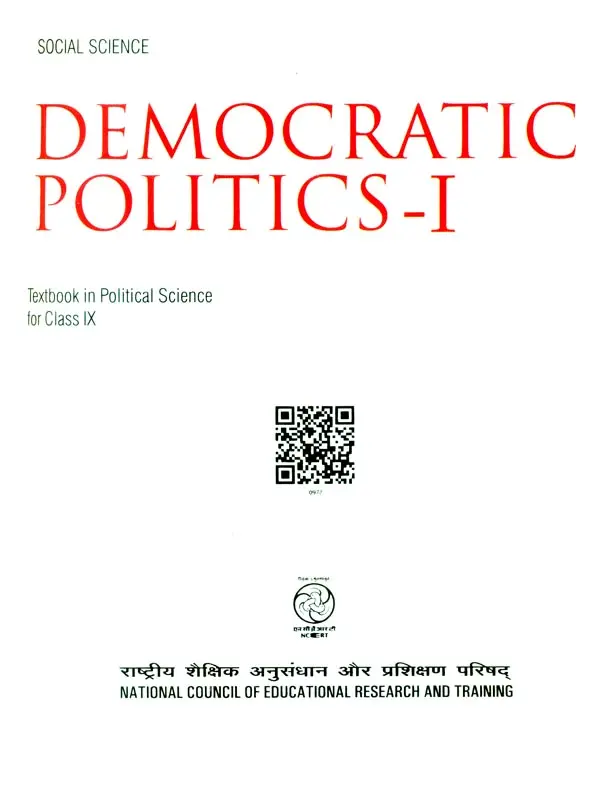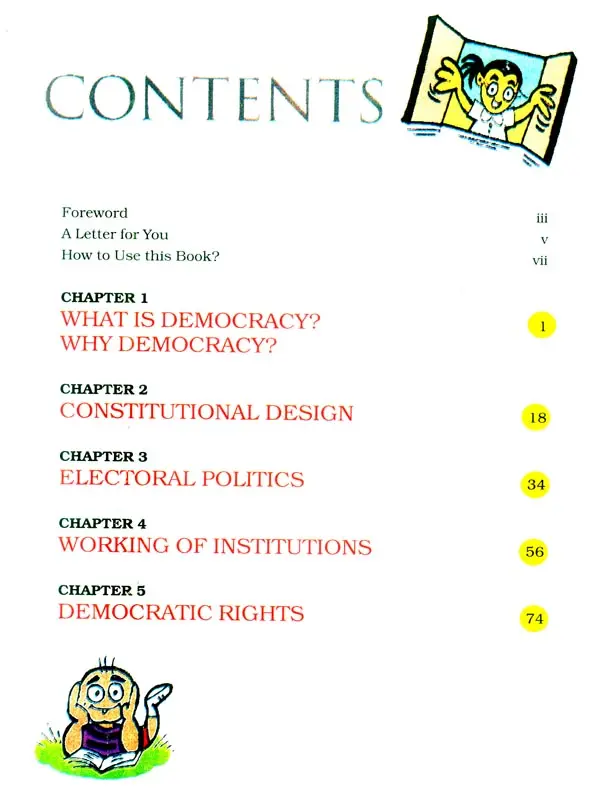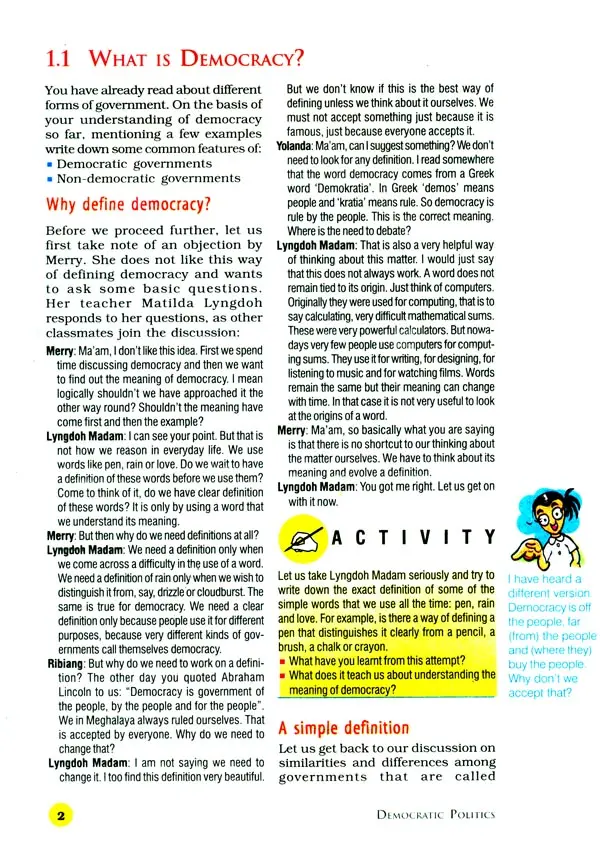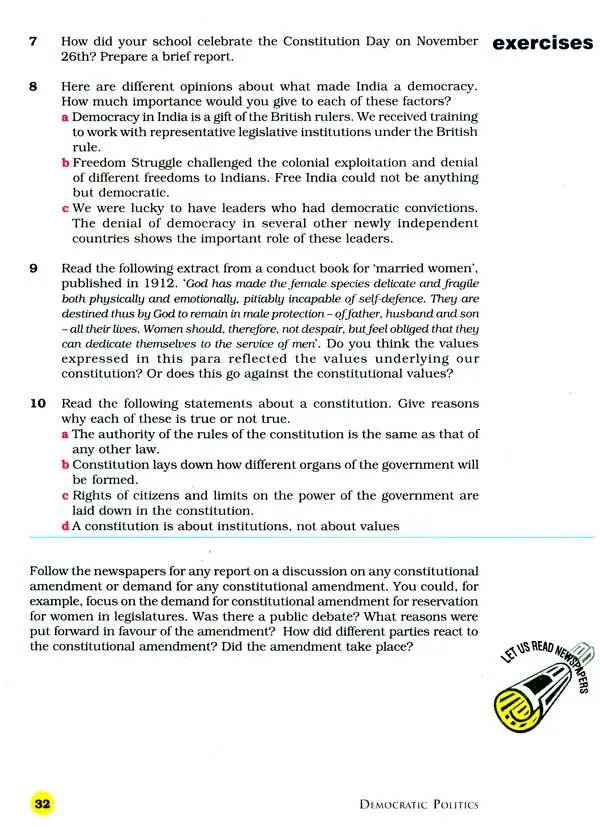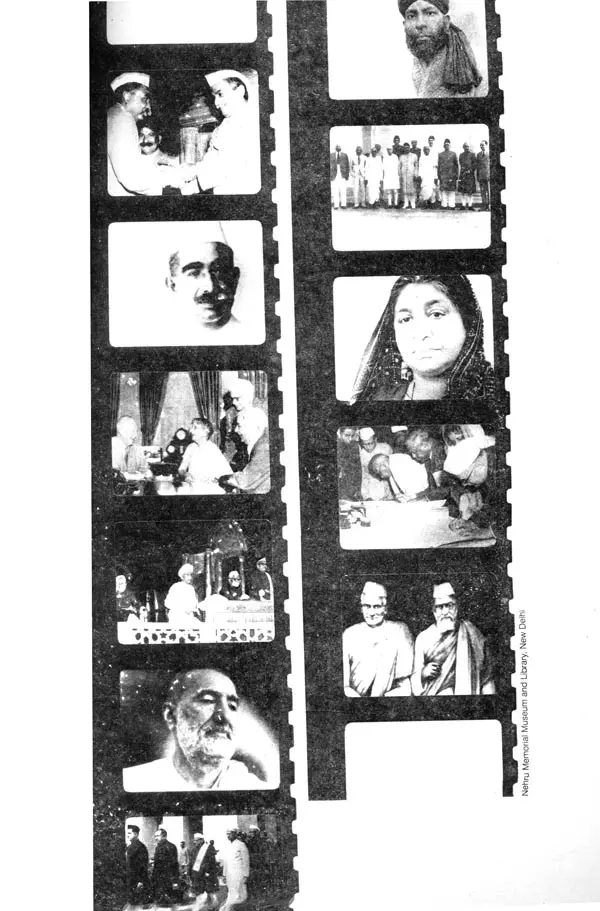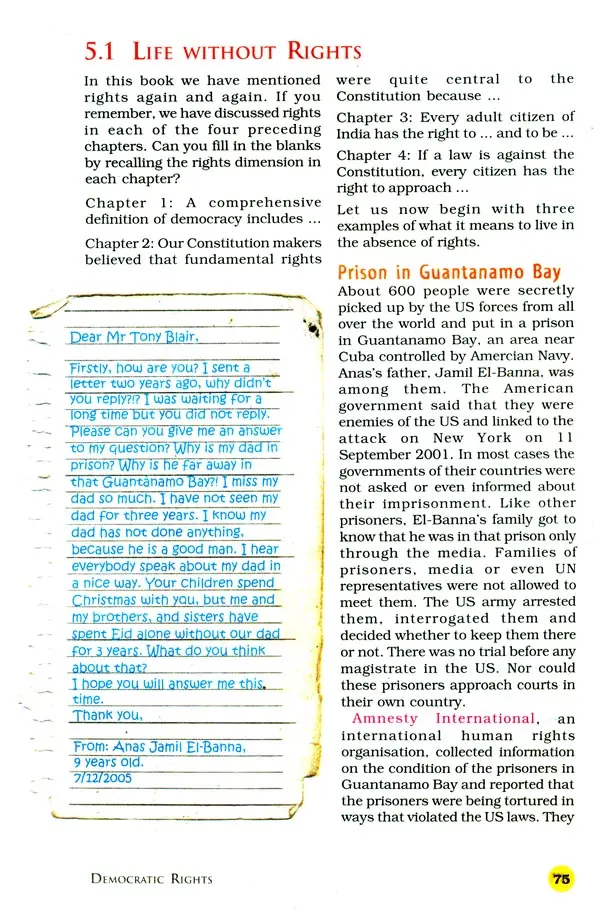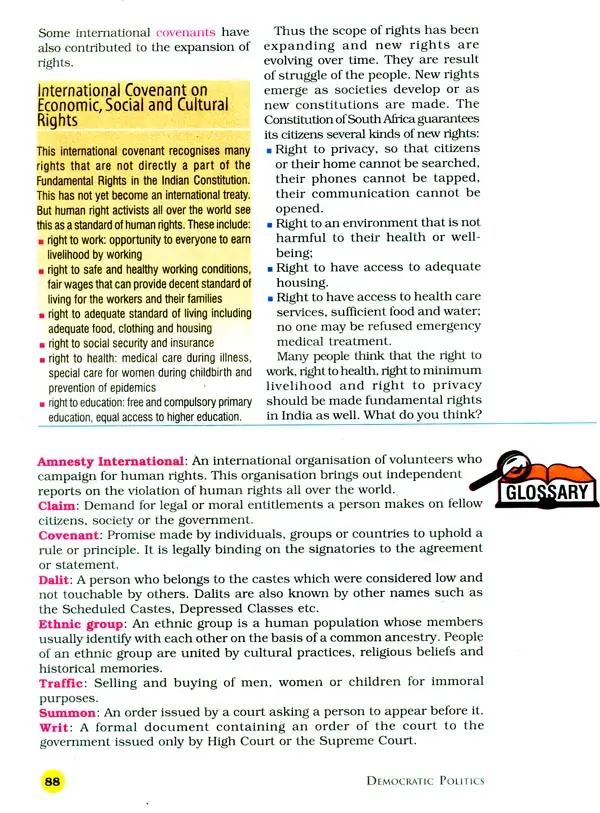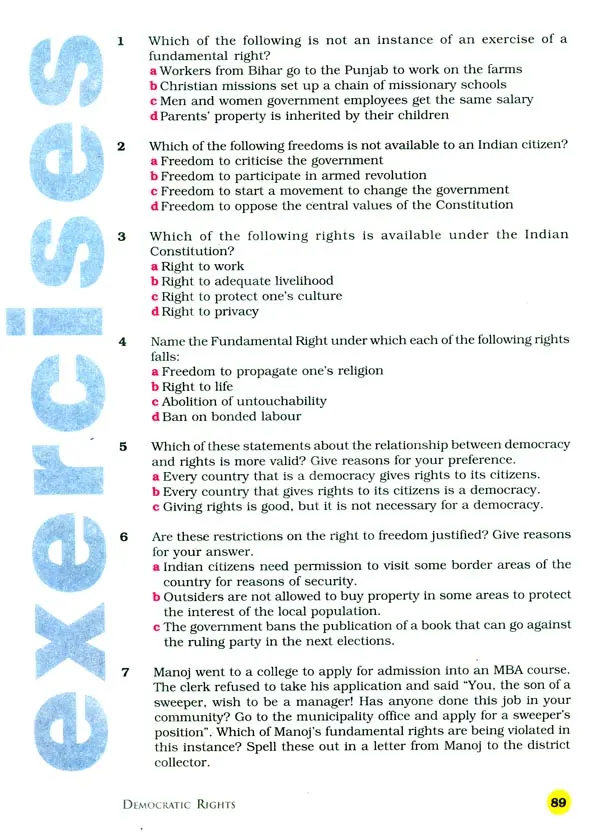
Social Science Democratic Politics-I (Text Book in Political Science for Class IX)
Book Specification
| Item Code: | UAH272 |
| Publisher: | National Council of Educational Research and Training |
| Language: | English |
| Edition: | 2021 |
| ISBN: | 8174505377 |
| Pages: | 202 (Throughout Color and B/w Illustrations) |
| Cover: | PAPERBACK |
| Other Details | 11.00 X 8.00 inch |
| Weight | 270 gm |
Book Description
The success of this effort depends on the steps that school principals and teachers Will take to encourage children to reflect on their own learning and to pursue imaginative activities and questions. We must recognize that given space, time and freedom, children generate new knowledge by engaging with the information passed on to them by adults. Treating the prescribed textbook as the sole basis of examination is one of the key reasons why other resources and sites of learning are ignored. Inculcating creativity and initiative is possible if we perceive and treat children as participants in learning, not as receivers of a fixed body of knowledge.
These aims imply considerable change in school routines and mode of functioning. Flexibility in the daily time-table is as necessary asrotgour in implementing the annual calendar so that the required number of teaching days is actually devoted to teaching. The methods used for teaching and evaluation will also determine how effective this textbook proves for making children's life at school a happy experience, rather than a source of stress or boredom. Syllabus designers have tried to address the problem of curricular burden by restructuring and reorienting knowledge at different stages with greater consideration for child psychology and the time available for teaching. The textbook attempts to enhance this Endeavour by giving higher priority and space to opportunities for contemplation and wondering, discussion in small groups, and activities requiring hands-on experience.
The National Council of Educational Research and Training (NCERl1 appreciates the hard work done by the textbook development committee responsible for this book. We wish to thank the Chairperson of the advisory group in Social Sciences, Professor Hari Vasudevan and the Chief Advisors for this book, Professor Yogendra Yadav and Professor Suhas Palshikar for guiding the work of this committee. Several teachers contributed to the development of this textbook; we are grateful to their principals for making this possible. We are indebted to the institutions and organizations which have generously permitted us to draw upon their resources, material and personnel. We are especially grateful to the members of the National Monitoring Committee, appointed by the Department of Secondary and Higher Education, Ministry of Human Resource Development under the Chairmanship of Professor Mrinal Miri and Professor G.P. Deshpande, for their valuable time and contribution. As an organization committed to systemic reform and continuous improvement in the quinty of its products, NCERT welcomes comments and suggestions which will enable us to undertake further revision and refinement.
Book's Contents and Sample Pages
